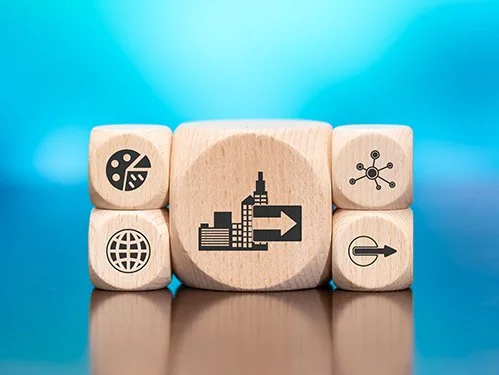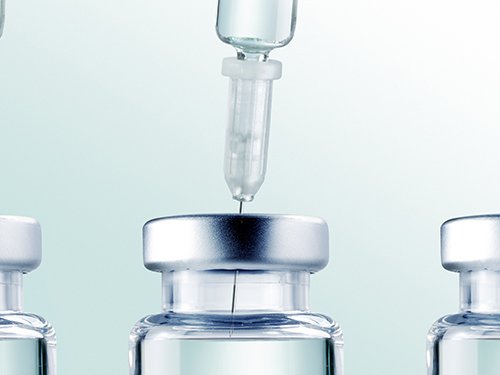
Featured Stories
The Role of Artificial Intelligence in Antibody Drug Discovery
Traditional antibody discovery is notoriously slow and resource-intensive, but a new wave of AI tools is enabling optimization of candidates prior to them reaching the clinic, accelerating development timelines.
Weathering Headwinds: Bio/Pharma’s Roadmap for Success in 2026
Despite geopolitical uncertainties, regulatory reforms, and fluctuating capital expenditure, the bio/pharma industry is entering 2026 with renewed focus and confidence.
The Outsourcing Pivot for Bio/Pharma Innovation
Facing a world of political risk and scientific hurdles, pharma companies are downsizing internal footprints to focus on portfolio management while leaning on CDMOs for specialized execution, explains Owen Murray from Bend Bioscience.
Pharmapack 2026: Moving Toward a Large-Volume Future
From managing high viscosity to preventing agglomeration, the industry is shifting toward larger-volume, device-compatible solutions that prioritize both drug stability and healthcare efficiency, points out Dr. Robert Lindner from SCHOTT Pharma.
Pharmapack 2026: A New Era of Accountable Pharma Packaging
Changes to sustainability reporting requirements are leading to renewed focus on supplier tools and packaging tenders, and driving a greater need for industry to adapt to ESG standards, reveals Morten Munk from FUJIFILM Biotechnologies.
Pharmapack 2026: Solving the Intradermal Delivery Puzzle
To efficiently and accurately target the immune-rich dermal layer, drug delivery devices must overcome user-dependent variables, explains Michele Guasti from Terumo Medical Care Solutions.
Pharmapack 2026: The Importance of Early Integration
According to Christian Classen from Sanner Group, packaging decisions made too late in the development cycle often lead to avoidable failures in scalability and supply continuity.
J.P. Morgan Healthcare Conference 2026: The Practical Economic Value of AI
While the industry waits for AI-designed drugs to prove their mettle in the clinic, a more immediate return on investment is emerging in the development phase, points out Julien Meissonnier, Independent Director at Prolific Machines.
J.P. Morgan Healthcare Conference 2026: Navigating New Therapeutic Frontiers
While GLP-1s will still form part of the conversations at the 2026 J.P. Morgan Healthcare Conference, Julien Meissonnier, Independent Director for Prolific Machines, offers insights into other promising modalities that are worth discussing.
J.P. Morgan Healthcare Conference 2026: Investing in Domestic Resilience
In a market where investor confidence is tied to de-risked programs, the proven ability to solve complex manufacturing challenges, and established regulatory strength, the choice of a CDMO partner has never been more critical, remarks Ryan Lake from Lifecore Biomedical.
J.P. Morgan Healthcare Conference 2026: Targeting a Competitive Future
For Jeremie Trochu from Ardena, therapeutic selectivity, regional manufacturing resilience, and operational connectivity will prove to be critical themes for the industry over the coming months.
J.P. Morgan Healthcare Conference 2026: The Great Biopharma Reset
Ahead of the 2026 J.P. Morgan Healthcare Conference, Julien Meissonnier, Independent Director for Prolific Machines, breaks down the transitional phase of today’s market, highlighting the unsustainability of de-risking strategies in the long term.
J.P. Morgan Healthcare Conference 2026: Finding a Winning Strategy
For Megha Sinha from Kamet Consulting Group, industry conversations around key topics are shifting, as companies seek to gain the greatest operational benefits from AI and find ways to improve supply chain resilience without causing chaos.
J.P. Morgan Healthcare Conference 2026: A Cloud-Based Future for Regulatory Submissions
The PRISM project has the potential to offer a fundamental shift to the way that regulatory bodies and industry collaborate and interact, according to Frits Stulp from Implement Consulting Group.
J.P. Morgan Healthcare Conference 2026: Mastering Operational Improvements
According to Maria Andreasen from FUJIFILM Biotechnologies, there will be three operational priorities that will separate bio/pharmaceutical leaders from the rest of the industry in 2026.
J.P. Morgan Healthcare Conference 2026: From Speculative Hype to Operational High Conviction
In this exclusive preview to J.P. Morgan Healthcare Conference 2026, Elliott Berger highlights his thoughts of promising therapeutic modalities and explains why regional manufacturing is no longer optional for biopharma companies seeking long-term resilience.
Balancing Innovation and Cost Through the Right Partnership
Facing mounting cost pressures and the logistical challenges of scaling next-generation therapies, biopharma innovators are pivoting towards strategic, integrated outsourcing models, remarks Tom Sellig from Adare Pharma Solutions.
Innovating Inhalation: The Future of Pulmonary and Nasal Drug Delivery
Non-invasive drug delivery via pulmonary and nasal routes is increasingly in demand; however, while there has already been significant innovation within the sector, even more is required to meet future needs.
CPHI Frankfurt 2025: Gaining an Advantage with RTU Cartridges
Primary packaging requirements are evolving in line with development trends; however, flexible and easily integrated ready-to-use solutions are beneficial options, highlight Dr. Robert Lindner and Christoph Zauner from SCHOTT Pharma.
CPHI Frankfurt 2025: Advancing Innovation from Concept to Commercialization
For Jacob Werlinger from Bend Bioscience, turning innovative concepts into reality requires CDMOs to not just be service providers but more of a strategic scientific partner that can help advance the concept to commercialization using the right science tools.




















